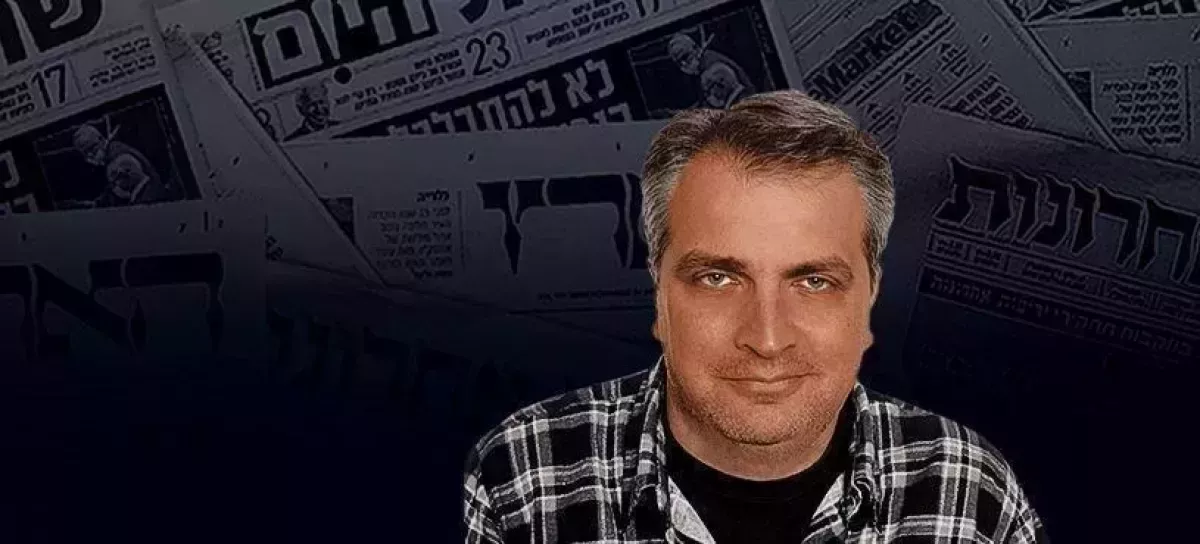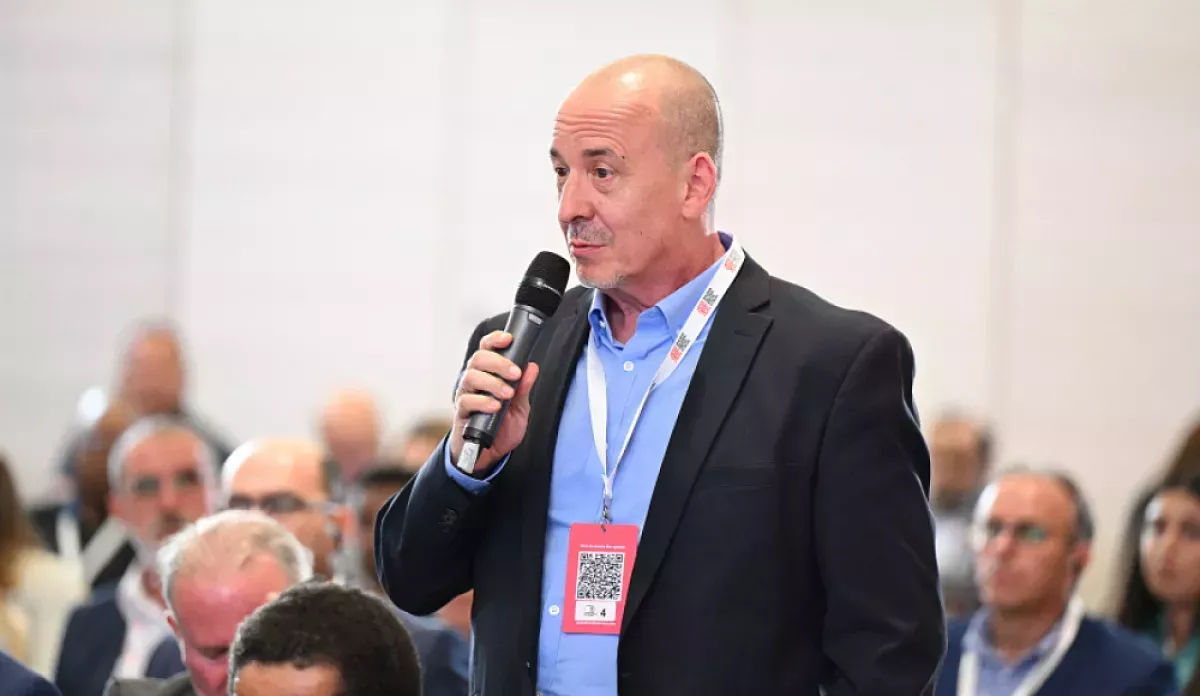Gaza Strip: “Peace is holding for now, but every day is a test” Expert opinions on Caliber.Az
As of today, the ceasefire in the Gaza Strip remains quite fragile, with both sides exchanging mutual accusations.
Israel has accused Hamas of violating the terms regarding the return of the bodies of deceased hostages and of carrying out an attack that resulted in the death of an Israeli soldier, prompting the IDF to carry out a series of powerful strikes. In turn, Hamas accuses Israel of breaching the ceasefire agreement in the Strip.
Currently, the global community’s attention is focused on whether, despite everything, the agreements reached will be implemented and peace established. Israeli political analysts and a Kazakh expert in Middle Eastern studies provide their insights for Caliber.Az.
Aigerim Zhampetova, a Turkologist, Middle Eastern studies expert, and PhD at the Department of Media Communications and History at the International Information Technology University in Kazakhstan, noted that the situation in Gaza remains extremely complex and unstable. She emphasised that the ceasefire appears fragile, as far-right forces in Israel wield significant power and support, despite protests in the country.

"In Israel, military conscription is mandatory, and currently the orthodox religious segment of the population is protesting against the draft. Earlier, protests were focused on securing the release of hostages, but now, when Israel has effectively achieved its goal, many are unwilling to compromise further or refrain from military action. The far-right insists that Palestine must be part of the Jewish state, which seriously affects the domestic political situation," she said.
The expert also emphasised that external support for Israel from the U.S. and Europe remains a key factor: "As long as America continues to provide real support to Israel, the situation will not change. Israel is a strong country, but not strong enough to face the entire region alone. This process is backed by the U.S. and European states, even though some of them have recognised Palestine."
She also believes that Israel’s current policy is linked not only to security concerns but also to domestic political calculations: "Moreover, all of this is a way for Netanyahu to maintain power. As far as I recall, the next elections in Israel are scheduled for 2026, so it is clear that he will try to secure re-election."
She emphasised that stabilising the situation requires at least a return to the previous level of security and expressed concern over the humanitarian consequences of the conflict.
"Today, it is important to return to the situation that existed before October 2023. Back then, despite frequent clashes, people could more or less live their lives. Now, that is impossible. Not to mention the question of who will govern Palestine, or whether there will even be two states. What is especially tragic is that children and women are dying.
If the U.S. truly wanted to stop the war, it could do so. However, apart from agreements, there are no real actions. Public opinion also plays a significant role. I haven’t seen recent polls in Israel, but I believe that a large part of the population supports actions against Palestine, and Netanyahu manipulates this. At the same time, international pressure remains one of the few effective tools, since the global community also plays a role — the more protests, real boycotts, and refusals of Israeli products, the better. This is also a form of pressure on Israel," concluded Aigerim Zhampetova.

Meanwhile, Israeli journalist and publicist Rostislav Goltsman, head of the International Relations Commission of the Union of Journalists of Israel, believes that the current situation regarding the deal reflects exactly the plan Israel proposed two years ago — one that could have been achieved without military action.
"This concerns the same three points Israel has insisted on from the very beginning: first, the complete and unconditional return of all hostages, both alive and deceased; second, Hamas must lay down its arms; and third, it must relinquish power and leave the Gaza Strip. These demands have not changed since the early days of the conflict — it’s just that for a long time, no one was willing to implement them," he said.
According to him, a turning point came when Donald Trump adopted this plan as a basis and developed it creatively.
"Now it’s not just three points, but twenty, including a large-scale reconstruction of the Gaza Strip and transforming it over two years into a new ‘Riviera’ with elements of a technology park. After this, international pressure shifted away from Israel and onto Hamas — even from its traditional sponsors, such as Qatar," Goltsman emphasised.
He noted that Israel’s position remains firm: without the fulfilment of the first point — the return of all hostages — the remaining 20 points will not be discussed.
"This means the war will continue because Hamas is deliberately sabotaging the agreements, violating the ceasefire, and continuing to attack Israeli positions. Israel has made it clear: if no other options remain, military action will resume," the expert emphasised.
In his view, a turning point in Qatar’s stance came after Israel struck the Hamas headquarters in Doha: "Even the Qatari prime minister recently admitted that this changed the rules of the game. Israel demonstrated that it can locate terrorists anywhere, and missiles will strike where necessary. That is why Qatar and Egypt are now actively pressuring Hamas, demanding that it lay down arms and relinquish power."
Goltsman added that the plan under discussion includes the creation of a technocratic government led by Tony Blair, which would oversee the reconstruction of the Gaza Strip.
"This is not what Hamas wants, but it aligns with Trump’s idea of establishing a technical government, rather than creating yet another structure to siphon off international aid," he explained.
According to the expert, despite persistent scepticism, there are reasons for cautious optimism in the situation.
"Without the fulfilment of the first three points — the return of all hostages, the complete disarmament of Hamas, and its departure from power — further steps are impossible. However, there are positive signals: Trump’s advisers [Jared] Kushner and [Steve] Witkoff, along with Vice President Vance and the Secretary of State, recently visited Israel. After the visit, Kushner stated that Saudi Arabia is likely to join the Abraham Accords by the end of the year. Riyadh’s rhetoric has shifted — now they speak not in terms of ‘if,’ but ‘when.’ Additionally, anti-Hamas factions are gaining strength within the Gaza Strip itself. All of this indicates that the process is moving forward, and Israel has grounds to look to the future with cautious, yet real, optimism," Goltsman said.

At the same time, Roman Gurevich, Honorary Ambassador of the World Jewish Agency “Sochnut,” former military correspondent, and author of the “National Security Professional” project, believes that the first stage of the deal to end the war and return hostages became possible thanks to decisive actions by the U.S. president — it was the American initiative that enabled real results. However, Hamas continues to delay fulfilling key obligations.
"In the first stage, all the living hostages who remained in Gaza were released," Gurevich said. "This was only possible because of Donald Trump’s decisiveness. However, Hamas, which under the agreement was supposed to return the bodies of all the deceased within 72 hours, has failed to do so. There are still bodies of Israelis killed by militants in the Strip. Admittedly, some bodies were handed over recently, but overall, Hamas continues to drag its feet. Sometimes they release the bodies of random individuals or stage outright theatrics. There was a case where they buried part of an Israeli’s body and then, in front of Red Cross representatives, ceremoniously ‘found’ it. All of this was recorded by an Israeli drone. In other words, this is not about searches, but cynical games they play, using the remains as a tool of pressure."
According to him, the Israeli side is doing everything possible to return the bodies of the deceased and strictly follows procedures: "When bodies are brought to Israel, they are taken to the Institute of Forensic Medicine, where specialists conduct identification. Only after that are the relatives notified, and the information becomes public. Israel strives to return every body, even if it is just remains. This is a matter of duty and honour."
The honorary ambassador also noted that after Israeli troops withdrew, new acts of violence began in the Strip: "When the Israeli army pulled back to the control line, Hamas began carrying out shootings and executions — all in an effort to regain power. But this is not easy for them: there are armed Palestinian groups in Gaza that are already opposing them. While these groups are not stronger, they inflict damage and prevent Hamas from fully restoring its influence."
Gurevich emphasised that Hamas has tried to violate the ceasefire from day one: "Literally on the first day, three Palestinians approached Israeli army positions, ignored warnings, and were neutralised. There were also attacks from the Rafah area, which ended in retaliatory strikes. Hamas is clearly testing how far it can go without facing consequences."
He noted that the continuation of Israel’s operation largely depends on decisions from the American side: "Trump’s initiative is currently at the centre of attention, and American representatives are constantly present in Israel — we even jokingly call them ‘babysitters’ because they monitor Prime Minister Netanyahu to ensure the ceasefire is not broken. However, after the Palestinian attack near Rafah, Israel was given the go-ahead to carry out a powerful retaliatory strike, and a large number of militants were eliminated."
Emphasising that the situation in Gaza remains extremely fragile, Gurevich stated that steps are now being taken that should have been implemented from the start — creating an alternative to Hamas’ rule: "This could be a technocratic government, a coalition of Palestinian clans, or international forces to monitor the ceasefire. Without this, any agreement is meaningless."
He added that the participation of international peacekeepers is currently under discussion.
"A headquarters has already been established near the Gaza Strip, and the Americans are taking an active part in this process. If other countries join, it will strengthen oversight of the deal’s implementation," he said.
Roman Gurevich emphasised that Israel’s main goal remains unchanged.
"The primary task for Israel is to ensure that Hamas is not in power under any settlement. Israel will not allow the terrorist organisation to remain in any form. At the same time, the right remains to carry out targeted eliminations of those who attempt to break the ceasefire. This is the only way to keep the situation under control. Israel pressures to recover the bodies of the deceased — Hamas resists and provokes — Israel responds. Meanwhile, the Americans are closely monitoring to ensure this does not escalate into a new round of war. Peace is holding for now, but every day is a test," concluded Roman Gurevich.








